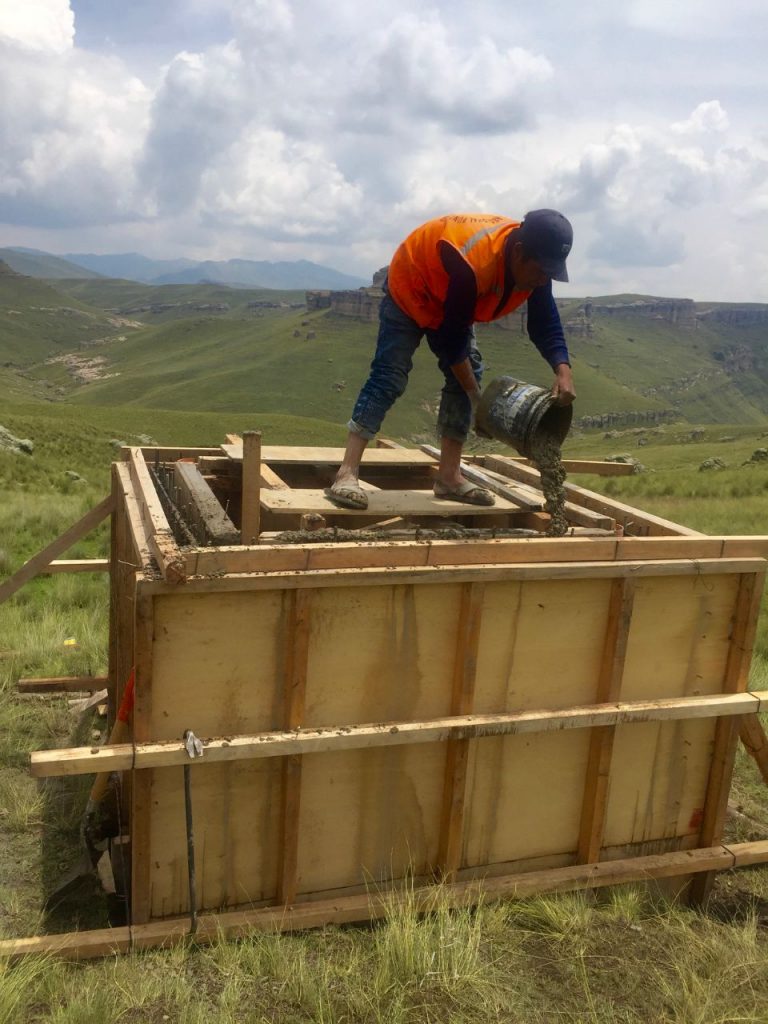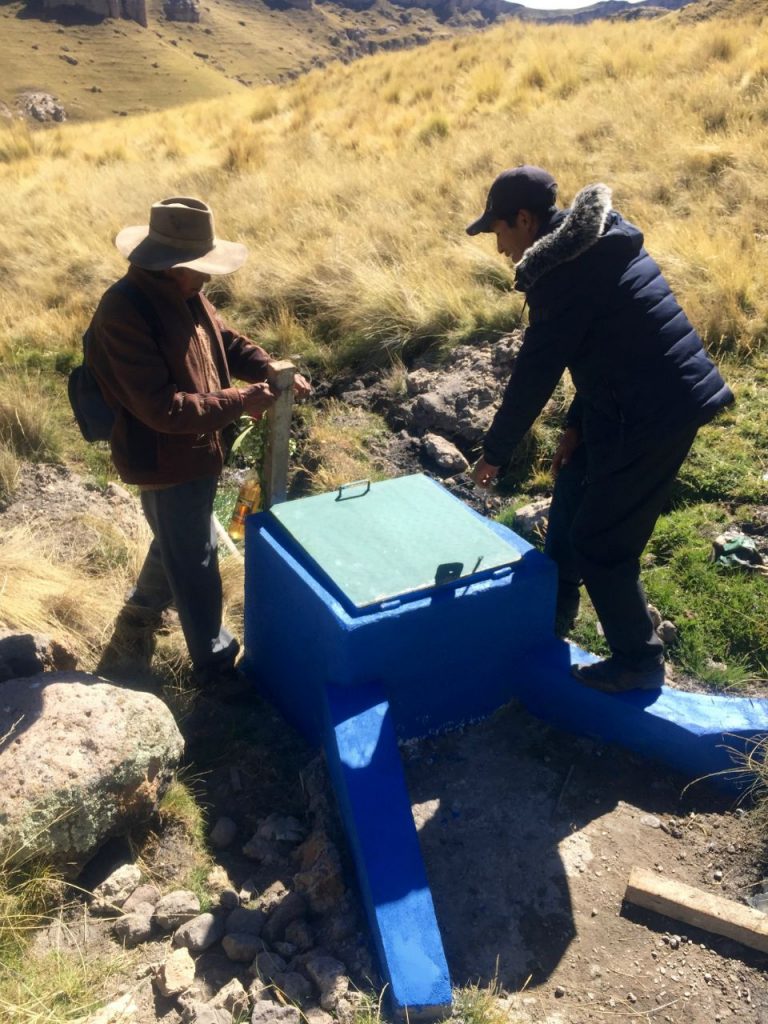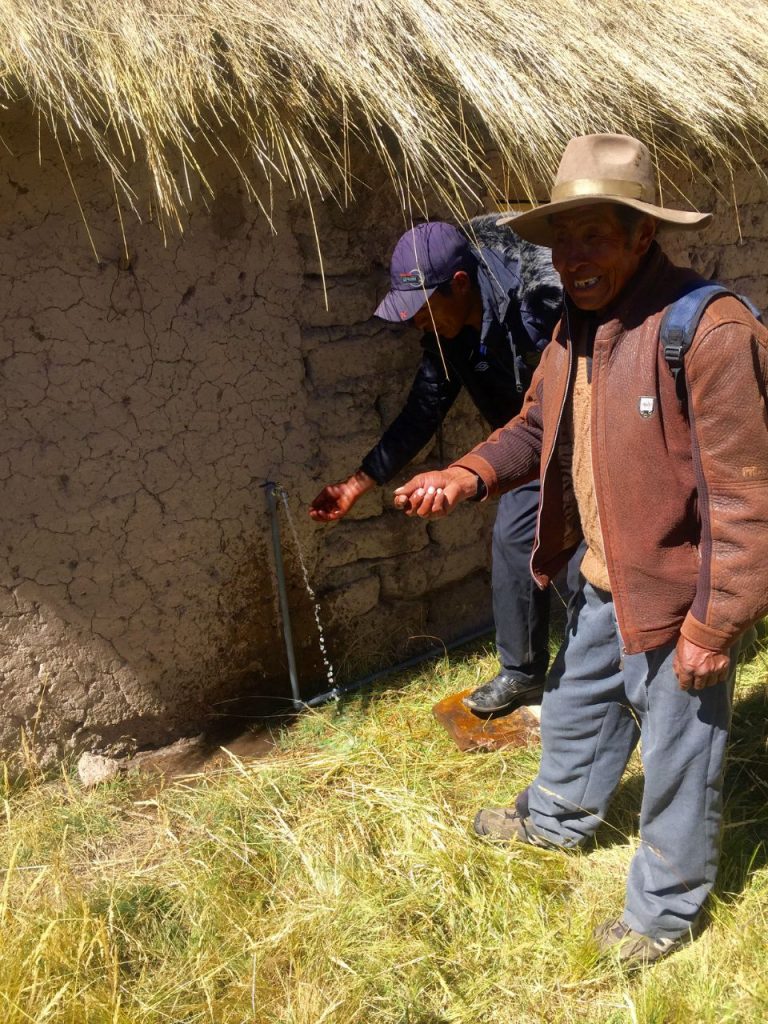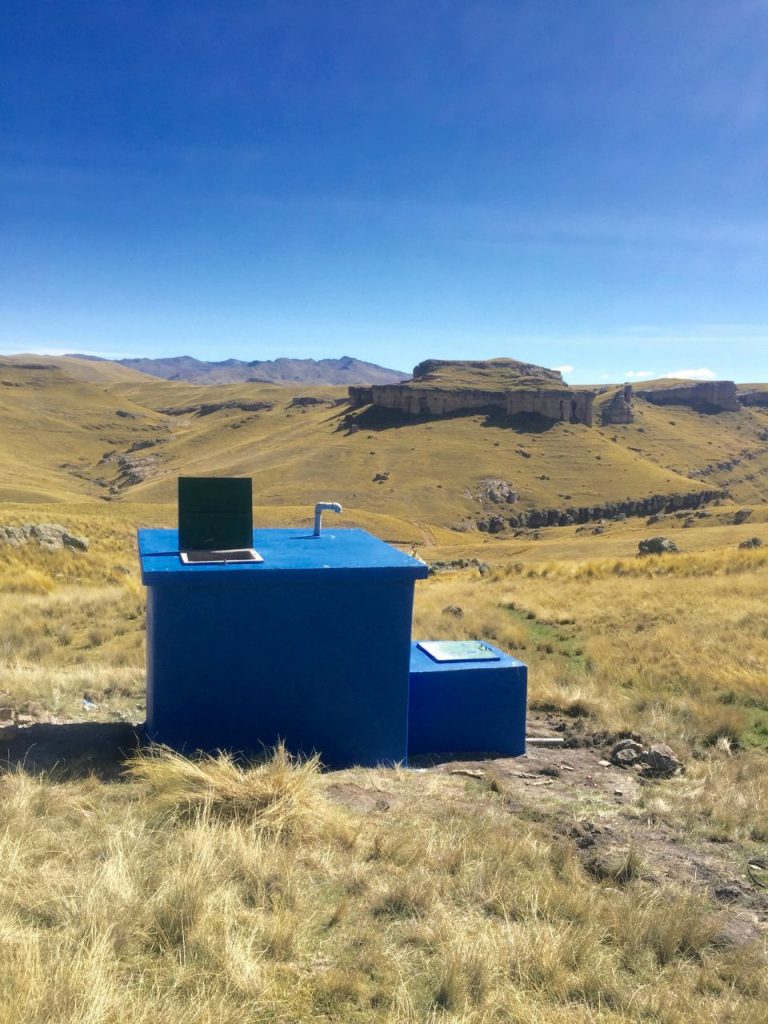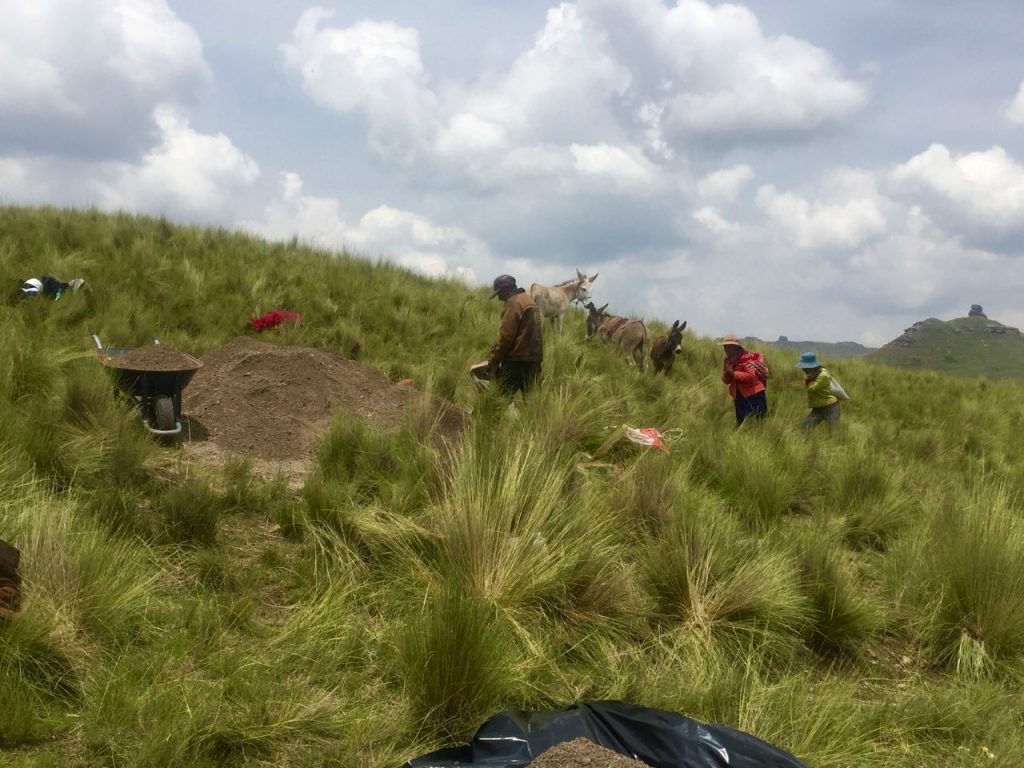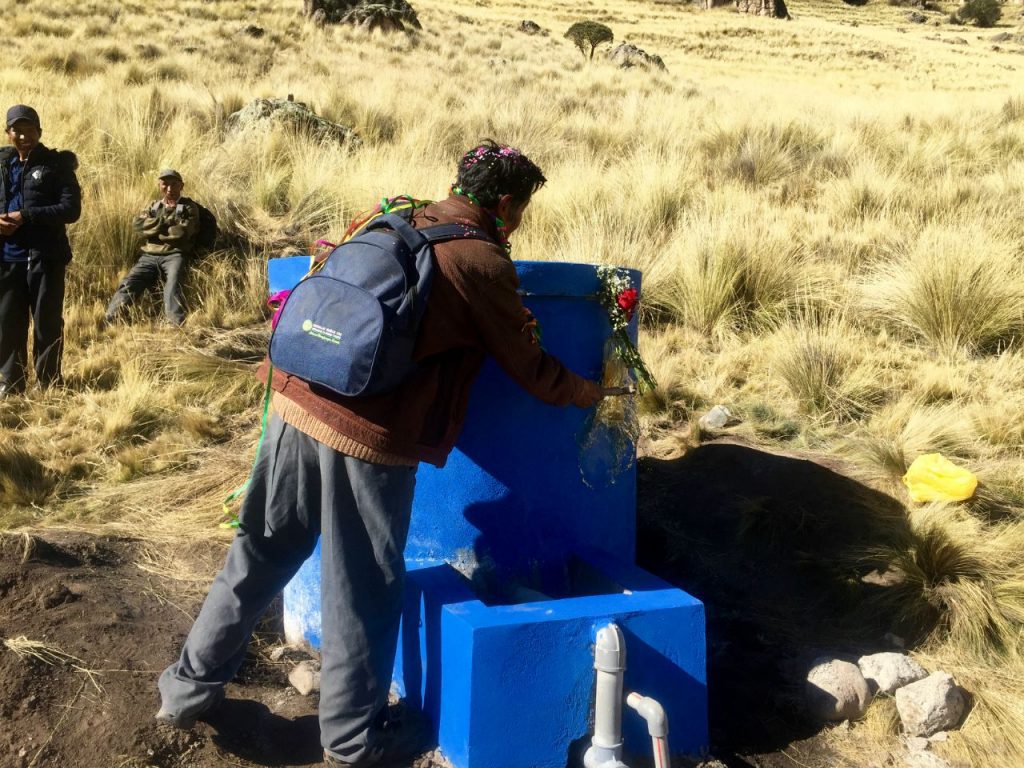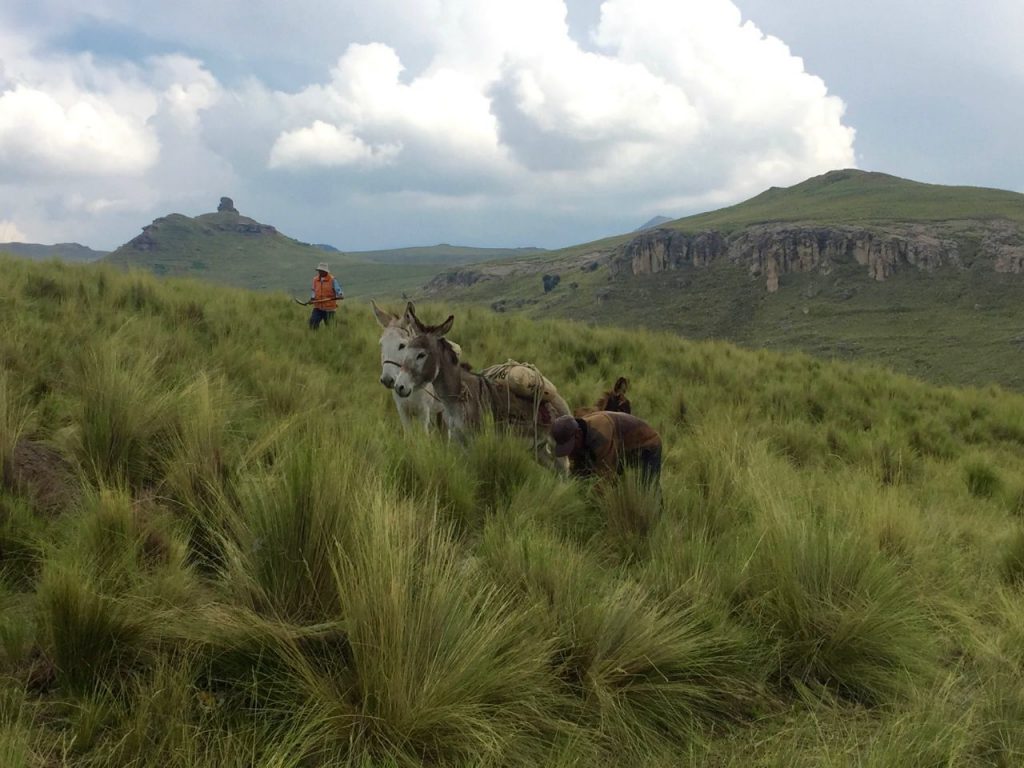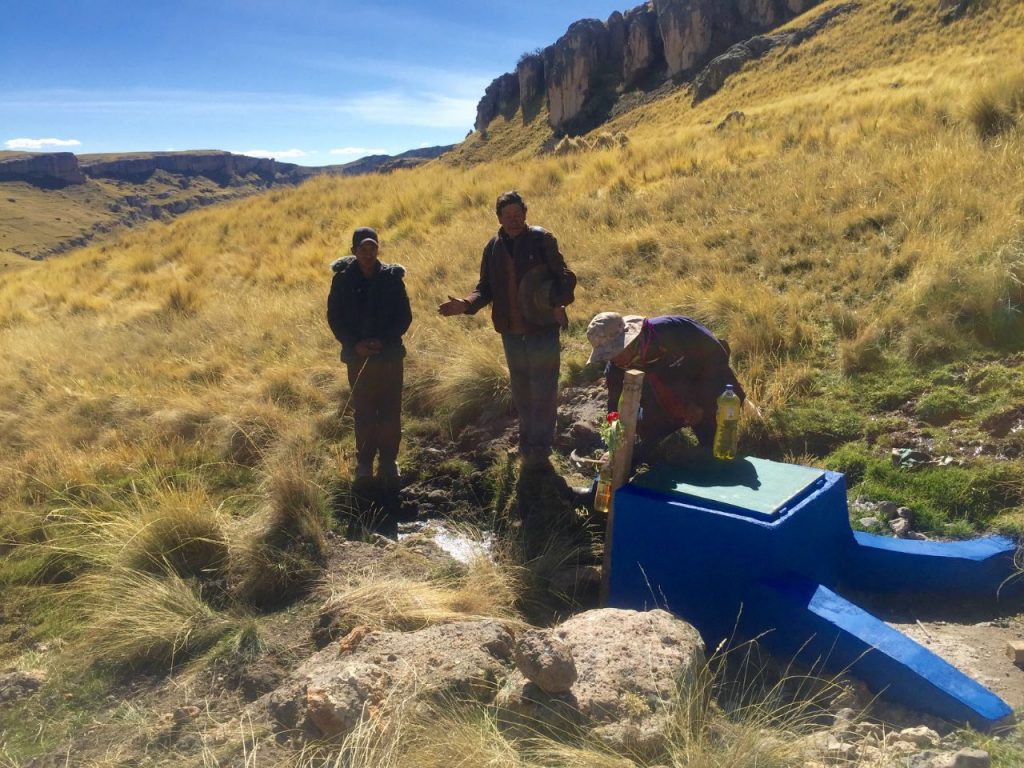This project has been completed under the direction of RPCV Ralph Bolton, founder, and director of The Chijnaya Foundation, under the direction of Chijnaya’s operational arm, Asociación Pro-DIA, its Peruvian counterpart, and managed by RPCV Kimmy Mazza.
To read about the start of the project, CLICK HERE.
The project was designed to build a rainwater capture, collection, distribution, and storage system for the community.
Kimmy reports:
The Alto Angará Catchment and Storage System project was very labor-intensive and was completed successfully thanks to the dedication and hard work of the community.
Alto Angará is one of the most difficult communities to reach in the Pucará district. During months of the rainy season, the community is completely inaccessible by car and many parts of the community are inaccessible by car year-round because of a lack of roads within the community. Poor accessibility meant that it was not possible to use heavy machinery during the construction process. Community members used donkeys and manpower to transport materials long distances to the construction site.
It was also not possible to use a cement mixer, so the community hand-mixed all of the cement during the construction process. Finally, the community members excavated over 4 kilometers of ditches to install the water distribution system.
Although this project was incredibly labor-intensive, the community is so happy with the final result. Catchment and storage tank systems were constructed in strategic locations to provide running water to the entire community.
The hard work and success of the project were celebrated in the inauguration of the new water system where community authorities were covered in ribbons and confetti and then broke champagne bottles over the new structures. Many community members expressed their gratitude for the project that would not have been possible without the support of Water Charity.
Access to a clean source of running water for the first time in the history of the community will greatly improve community health as well as standards of living because community members no longer have to walk long distances to retrieve water from contaminated sources.
We extend our thanks to Kimmy for completing this important project and to the Paul Bechtner Foundation for providing the funding.
